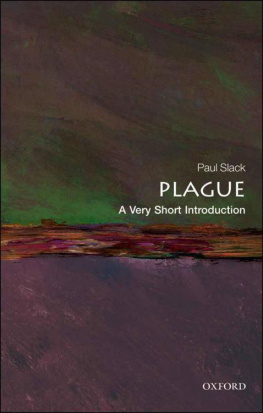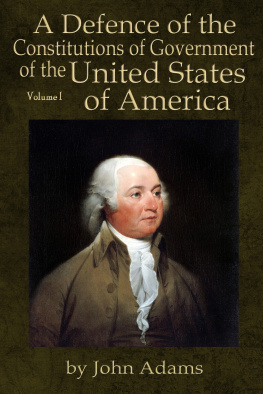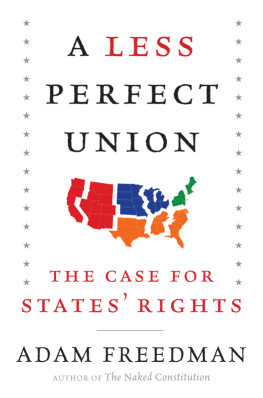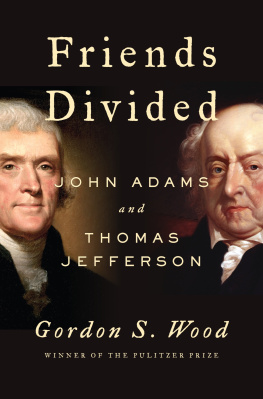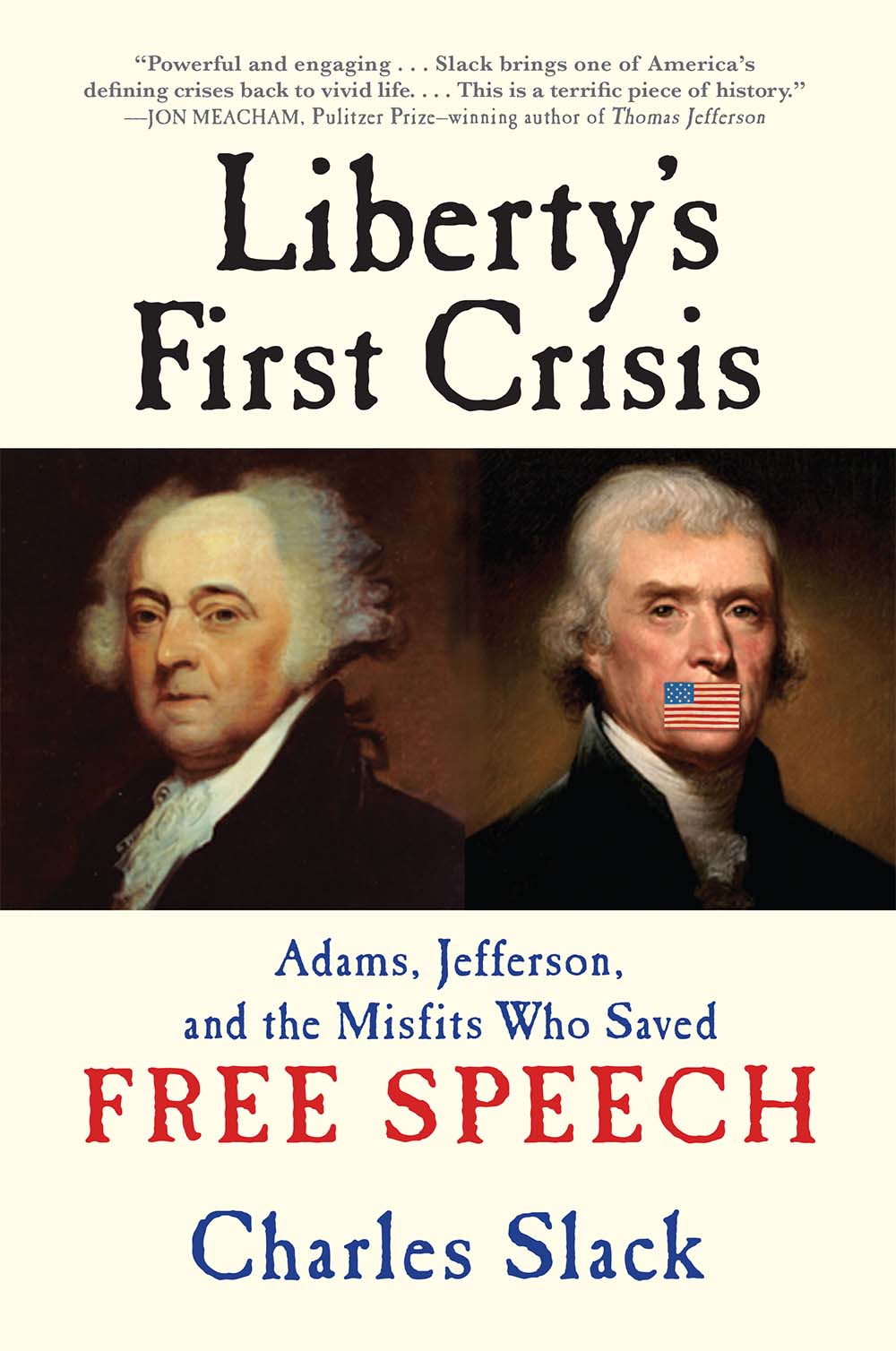LIBERTYS
FIRST CRISIS
Also by Charles Slack
Hetty: The Genius and Madness of Americas First Female Tycoon
Noble Obsession: Charles Goodyear, Thomas Hancock, and the Race to Unlock the Greatest Industrial Secret of the Nineteenth Century
Blue Fairways: Three Months, Sixty Courses, No Mulligans
LIBERTYS
FIRST CRISIS
Adams, Jefferson,
and the
Misfits Who Saved
Free Speech
CHARLES SLACK

Atlantic Monthly Press
New York
Copyright 2015 by Charles Slack
Portraits of Jefferson and Adams by Gianni Dagli Orti/The Art Archive at Art Resource, NY
Author photograph Denise Bosco
All rights reserved. No part of this book may be reproduced in any form or by any electronic or mechanical means, including information storage and retrieval systems, without permission in writing from the publisher, except by a reviewer, who may quote brief passages in a review. Scanning, uploading, and electronic distribution of this book or the facilitation of such without the permission of the publisher is prohibited. Please purchase only authorized electronic editions, and do not participate in or encourage electronic piracy of copyrighted materials. Your support of the authors rights is appreciated. Any member of educational institutions wishing to photocopy part or all of the work for classroom use, or anthology, should send inquiries to Grove/Atlantic, Inc., 154 West 14th Street, New York, NY 10011 or .
Published simultaneously in Canada
Printed in the United States of America
ISBN 978-0-8021-2342-8
eISBN 978-0-8021-9168-7
Atlantic Monthly Press
an imprint of Grove/Atlantic, Inc.
154 West 14th Street
New York, NY 10011
Distributed by Publishers Group West
www.groveatlantic.com
For My Father, Dr. Warner Slack
Whose Words and Actions
Have Taught Me the Beauty of Freedom
Who would have believed it, had it been foretold, that the People of America, after having fought seven long years to obtain their Independence, would, at this early day, have been seized and dragged into confinement by their own government?
The Aurora , Philadelphia, Nov. 22, 1798
Congress shall make no law respecting an establishment of religion, or prohibiting the free exercise thereof; or abridging the freedom of speech, or of the press; or the right of the people peaceably to assemble, and to petition the Government for a redress of grievances.
The First Amendment to The Constitution of the United States
Se di tion (s-dsh-n). n. Conduct or language inciting rebellion against the authority of a state.
The American Heritage Dictionary of the English Language
Contents
Authors Note
To avoid a needless distraction for contemporary readers, I have removed the eighteenth-century convention of using f for s when quoting from period publications. Otherwise, I have preserved the authors spelling, capitalization, and punctuation. Italics, unless otherwise noted, are in the original.
Part I
THE ROAD
TO SEDITION
Chapter One
The greatest enemy of liberty is fear. When people feel comfortable and well protected, they are naturally expansive and tolerant of one anothers opinions and rights. When they feel threatened, their tolerance shrinks. By 1798, the euphoria surrounding the American Revolution, the sense of a common purpose and a common enemy, was gone. Everyone agreed that the new nation founded amid high hopes and noble ideas was in danger of collapse. The one thing they could not agree on was who to blame.
The Federalists, who dominated most of New England as well as both houses of Congress, the John Adams presidency, and the Supreme Court, viewed themselves as the protectors of family, faith, education, and country. Though the term federalism refers only to the system of shared powers between individual states and a centralized government forged by the Constitution, under the leadership of men such as Alexander Hamilton, principal author of the Federalist Papers, it had come to imply a decisive tipping of the scales in the direction of centralized power. Hamilton and other Federalists believed in a strong national military to protect the fledgling country from foreign invaders, a centralized bank to stabilize and grow the economy, and a government with the muscle to tax and to direct the destiny of the nation. They had little faith in the intelligence or morals of average men. As such, they believed in liberty, yes, but liberty as informed and guided by a natural aristocracy consisting of themselves.
Yet everywhere they turned, they saw their orderly utopia of English-descended freemen under siege, rapidly devolving into something more volatile and chaotic. For this, Federalists blamed an unofficial, disparate but growing collection of citizens referring to themselves as Republicans, or Democrats, or Democratic-Republicans, or Jeffersonian Democrats. In the interest of simplicity, theyll be referred to henceforth as Republicans, but with no inference of a connection or lineage to the modern party of the same name. Indeed, the word party, now so firmly rooted in our political language that one might assume party structure was written into the Constitution, was an epithet in 1798. Men in power used party interchangeably with faction and interest to designate outliers, troublemakers, and enemies of good government.
In their innocence, the founding generation assumed that a government chosen by the people would represent all the people. Federalists, who had controlled most of the national government from its inception, never considered themselves to be a political party; to oppose the Federalists was to oppose the very idea of America. In his farewell address at the end of his second term in 1796, President George Washington, the great unifier, had warned against the baneful effects of the Spirit of Party, and the alternate domination of one faction over another, sharpened by the spirit of revenge natural to party dissention.
Yet to those calling themselves Republicans, Federalist efforts to unify the country were beginning to look a lot like what they had just fought a war to overturn. Everything from Washingtons fancy carriage to John Adamss thin-skinned reaction to criticism to Alexander Hamiltons emerging master plan for a muscular national bureaucracy had the whiff of privilege and elitism, if not incipient monarchism. Federalists, to Republican minds, were aristocrats and royalists bent on consolidating power and replicating English class divisions on American soil. Like the Federalists, Republicans believed their American utopia to be under siege, but their greatest fears surrounded the very measures that Federalists saw as the countrys salvation. The idea of a powerful national military (a standing army in the parlance of the day) raised the fresh specter of British troops forcibly quartered in the homes of colonists. A federal government capable of taxing at will elicited memories of usurious taxes imposed by a distant monarch.
Against this background of internal divisions, Americans were panicked over a possible imminent invasion by a great European power. The trouble was they could not agree on which European power, England or France, would do the invading. Fueled by hatred for the English monarchy, Republicans felt a spiritual connection with the French, who had not only aided the American Revolution but also launched a revolution of their own.
Federalists, for their part, had watched in growing horror as the French Revolution degenerated into a procession of rolling heads and bloodlust. They saw in that revolution a chilling forecast of what the United States could expect from its own population without strong, principled leadership from the elite. Indeed, they saw themselves as the last barrier against Republican-driven chaos. Radicals, revolutionaries, and malcontents from around Europe were streaming onto American soil and stirring things up.





